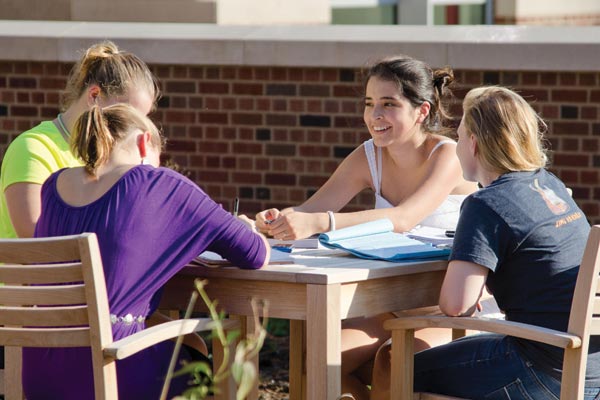A New Core Curriculum
Do you remember taking Perspective I and II courses? How about writing intensive or global courses? Soon these courses will be found only in the archives of Nazareth. As of next fall, incoming first year students will have a new core curriculum, one that integrates academic and experiential learning, liberal and professional study, and challenges students to make connections between their courses.
The old core was a wonderfully eye-opening experience for some, but for others it had become stale—just a number of hoops to jump through. The original ideas behind the various requirements (like the PIs, PIIs) had largely been forgotten. Consequently faculty and staff looked at national best-practices, consulted with current students, and then put their heads together to design a new core for Nazareth—one that preserves the rigor and breadth of the old core but is more explicitly and intentionally focused on inviting students to connect what they’re learning with what’s happening in the world, their own life, and what they hope to achieve as professionals. The students who worked with faculty and staff in designing the new core are excited by the degree of control and responsibility it will give them.
In the new core, each requirement is meant to lay the foundation for the next. In the first year, students learn how to ask and explore different kinds of questions (from big, enduring questions to scientific ones). In the second year, they choose an Integrative Studies Question that interests them, then explore it in three upper-level courses and in an experiential learning activity (e.g., service-learning, study abroad, an internship, undergraduate research, student leadership, or a clinical experience or practicum). Finally, in their third year, students take a “capstone of the core” seminar in which they formally integrate and reflect on what they’ve learned.
“It’s the intentional integration that’s new,” says Heidi Northwood, Ph.D., director of the core. “Students will be challenged to take responsibility for and integrate their own learning in a way that wasn’t possible when the core was perceived as a set of unrelated requirements. And with this new emphasis will hopefully come a greater awareness of how the skills and knowledge they get from the study of liberal and professional arts have prepared them for meaningful careers and making the most out of life.”

For more information, visit naz.edu/core